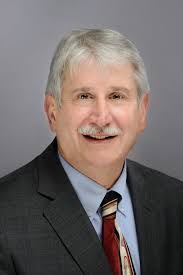In a per curiam opinion that issued on May 30, 2017, the Maine Supreme Judicial Court affirmed a judgment of the Superior Court denying an application to vacate arbitration awards and confirming those same awards.
In 2011, the Woodland Pulp Mill in Baileyville, Maine, constructed a 4.5 mile natural gas pipeline connecting the mill to the interstate Maritimes & Northeast Pipeline, which runs from Nova Scotia to Massachusetts. In 2013, Xpress Natural Gas entered into a contract with Woodland to lease space on its property for a CNG/LNG facility and to lease capacity on Woodland’s pipeline to supply gas to its facility.  Subsequently, a dispute arose when Woodland claimed that Xpress was “nominating” (ordering) more gas than it was using - in effect, using the pipeline to store gas when the price was low that it could later sell at a higher price. Although the parties’ contract was silent on this issue, Woodland claimed that the contract included an implied term incorporating a standard industry practice that required Xpress to “balance” its nominations with its usage. The contact contained an arbitration clause that defined a “Dispute” as “any dispute, claim or controversy arises out of this Agreement, including the performance, breach, validity, interpretation, application or termination thereof . . . which the Parties are not able to settle or resolve . . .” and went on to provide that:
Subsequently, a dispute arose when Woodland claimed that Xpress was “nominating” (ordering) more gas than it was using - in effect, using the pipeline to store gas when the price was low that it could later sell at a higher price. Although the parties’ contract was silent on this issue, Woodland claimed that the contract included an implied term incorporating a standard industry practice that required Xpress to “balance” its nominations with its usage. The contact contained an arbitration clause that defined a “Dispute” as “any dispute, claim or controversy arises out of this Agreement, including the performance, breach, validity, interpretation, application or termination thereof . . . which the Parties are not able to settle or resolve . . .” and went on to provide that:
Any Dispute that is not [mutually] resolved . . . shall be finally resolved by binding arbitration in accordance with the then current expedited commercial arbitration rules of the American Arbitration Association . . . and judgment on the award may be entered in any court having jurisdiction thereof.
The parties selected an Arbitrator,* and hearings were held before him on October 13 and 14, 2015. In a decision dated November 25, 2015, the Arbitrator concluded that “The failure to include a specific provision in the [contract] addressing the issue of potential imbalances created a significant ambiguity as to the parameters of Xpress' rights and obligations” and agreed with Woodland that the parties’ contract contained an implied term requiring Xpress to balance its nominations with its usage, in accordance with standard industry practice. The Arbitrator gave the parties 30 days (later extended) to negotiate such a provision but when negotiations failed the Arbitrator held another hearing, on February 19, 2016, and issued a supplemental decision which defined the terms of the “balancing” provision.
In denying Xpress’ appeal from the Superior Court and confirming the Arbitrator’s awards, the SEC began by recapitulating the applicable legal standard [note: all legal citations have been omitted from the following text]:
The standard for showing that an arbitrator exceeded his powers is “an extremely narrow one” in large part because the parties have bargained for the arbitrator’s construction of the contract at issue . . . We generally resolve any doubts in favor of the arbitrator’s authority and will uphold the arbitration award — even if it contains errors of law or fact — “if any rational construction of the agreement could support [the arbitrator’s] interpretation.” Id. (quotation marks omitted); . . . (“If this [arbitration] award can in any rational way be derived from the agreement, viewed in the light of its language, its context and any other indicia of the parties’ intention, it will be upheld.” (emphasis added)).
Contrary to Xpress’s contention on appeal, the arbitrator did not exceed his authority pursuant to 14 M.R.S. § 5938(1)(C). Considering that the parties themselves could not determine Xpress’s rights pursuant to the agreement, the arbitrator found that the agreement was ambiguous, examined the intent of the parties in entering the agreement, and implied a balancing obligation to remedy the ambiguity. . . . (“A contractual provision is considered ambiguous if it is reasonably possible to give that provision at least two different meanings.” (alteration omitted) (quotation marks omitted)).
In issuing the supplemental award, the arbitrator did expand upon Xpress’s implied obligation to “reasonably balance” its nominations and consumption of natural gas by adding terms including remedies for any future imbalances . . . The arbitrator did so, however, only after finding that the parties had understood in entering the agreement that Xpress would “adjust its use [of the pipeline] to accommodate Woodland’s [balancing obligations],” that the balancing terms proposed by Woodland were appropriate “for the foreseeable future” but could be revisited if Xpress’s business grew, and that the remedies for future imbalances proposed by Woodland were “appropriate and consistent with reasonable industry standards . . .” Given these findings, the arbitration awards did not “directly contradict the language of the agreement . . .”
____________
*Attorney Peter DeTroy, who died of cardiac arrest on May 28, 2016. The lead attorney for Woodland was William S. Harwood of Verrill & Dana; the lead attorneys for Xpress were Peter Brown of Preti Flaherty & Belliveau (who handled the arbitration) and Tim Norton of Kelly Remmel & Zimmerman (who handled the appeal).
About the blogger:
 Phil Moss is a member of the State of Maine’s Panel of Mediators, and has been active in alternative dispute resolution since he first entered the legal profession. In 1975, Phil was one of fifty attorneys who volunteered to participate in the pilot mediation program for the Boston Municipal Court, and in subsequent years he volunteered as a participant in pilot mediation projects for the Maine Human Rights Commission and the Maine Superior Court system. As an advocate he participated in well over 100 arbitrations and mediations, involving the hospitality industry, trucking and warehousing, supermarkets and public utilities (including nuclear power), among others. For a number of years prior to his retirement from the active practice of law, Phil was included in New England Super Lawyers, and listed in Chambers USA, America’s Leading Business Lawyers and in The Best Lawyers in America. Phil has worked pro bono publico for a number of organizations, including the Jewish Community Center of Portland, ME, the Pine Tree Council of the Boy Scouts of America and the Maine chapter of NAMI (National Alliance on Mental Illness).
Phil Moss is a member of the State of Maine’s Panel of Mediators, and has been active in alternative dispute resolution since he first entered the legal profession. In 1975, Phil was one of fifty attorneys who volunteered to participate in the pilot mediation program for the Boston Municipal Court, and in subsequent years he volunteered as a participant in pilot mediation projects for the Maine Human Rights Commission and the Maine Superior Court system. As an advocate he participated in well over 100 arbitrations and mediations, involving the hospitality industry, trucking and warehousing, supermarkets and public utilities (including nuclear power), among others. For a number of years prior to his retirement from the active practice of law, Phil was included in New England Super Lawyers, and listed in Chambers USA, America’s Leading Business Lawyers and in The Best Lawyers in America. Phil has worked pro bono publico for a number of organizations, including the Jewish Community Center of Portland, ME, the Pine Tree Council of the Boy Scouts of America and the Maine chapter of NAMI (National Alliance on Mental Illness).

